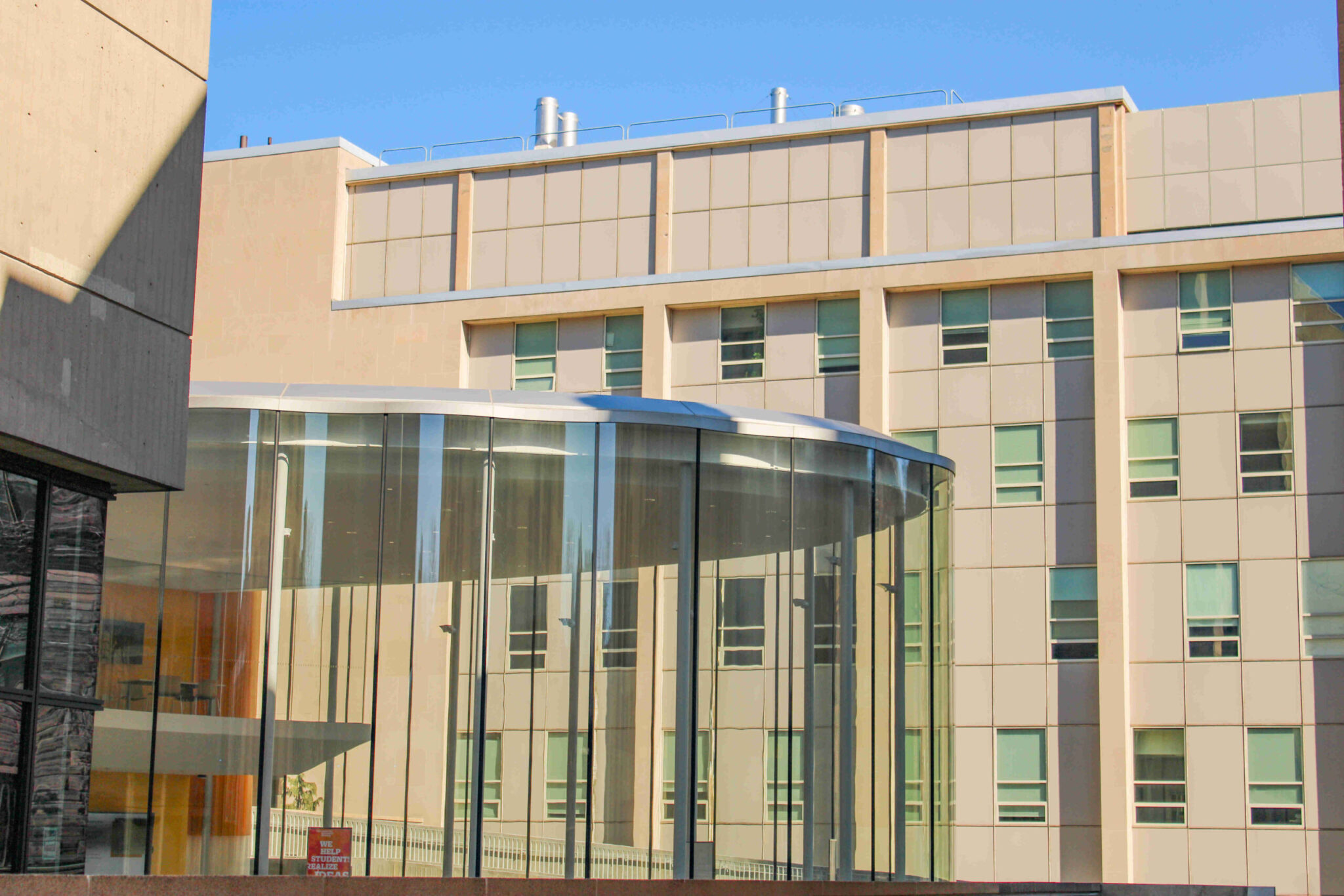Amazon VP talk at Tsai CITY prompts discussion over AI risks, benefits
A vice president of Amazon AI spoke with the Yale community about innovation in generative AI technologies and their future applications.

Jessie Cheung, Senior Photographer
Bratin Saha GRD ‘02, vice president of artificial intelligence and machine learning at Amazon Web Services, spoke with School of Engineering & Applied Science Dean Jeffrey Brock ‘92 and students at Tsai CITY on Monday as part of the ongoing speaker series at SEAS.
In their discussion, Saha spoke about recent developments in artificial intelligence and machine learning and their potential applications in other fields. At the beginning of the talk, Saha contextualized the scope of AI in the modern world and how much AI has progressed over the past few years. Following the event, the News spoke with several students who shared concerns about the role of AI and the potential for AI to allow companies to share private health data.
“We are at a tipping point for generative AI technology and [machine learning] innovation given that computing capacity has been doubling every three and a half months,” Saha said. “The industry has experienced a 1,600 times increase in investments since 2019, and the role of the cloud has made data readily available. This innovation can and will transform industry as we know it, and Amazon is in a position to lead this technological revolution.”
At the event, Saha presented a series of new generative AI and ML technologies that Amazon developed, saying that these products can help solve problems in different industries and transform the economic landscape. One such technological advancement, known as the “Amazon CodeWhisperer,” is an AI coding assistant, which helps users execute complex programming tasks simply by writing sentences in their native speaking language. Saha said the technology will make coding more accessible to people with little-to-no coding background.
“Java, Python and other languages will no longer be ‘the’ programming languages,” Saha said. “With CodeWhisperer, our mother tongues become our programming language. This improvement in accessibility also means that people who study humanities will be able to program using language efficiently and effectively.”
Saha also emphasized the potential uses of generative AI and ML in healthcare. According to Saha, physicians spend 40 percent of their time, on average, consolidating health information in a documentation process known as ‘scribing.’ He highlighted a new technology developed by Amazon AI called, “AWS HealthScribe,” an AI assistant that organizes patient files and summarizes health data.
Amazon, he said, hopes to use AI to combat other health care challenges too. Saha described Amazon Monitron, a device that detects the heat and vibrations of a machine and alerts a company if the device identifies any abnormal patterns suggesting that the machine will break. Coke and other companies already use this device for factory machinery, Saha said. Inspired by a talk at the Yale School of Medicine, Saha also mentioned that he wonders whether doctors could use a similar device to detect strokes.
In his talk, Saha said that Yale is a great partner for Amazon in pursuit of innovation and in thinking about democratizing data.
“Yale has some of the best research and professors across all fields,” Saha said. “It is the interdisciplinary nature of Yale that will allow us to think past the computer science to AI in healthcare, public policy, law and beyond. The liberal arts education at Yale will help understand at a basic theoretical level what is going on with AI, and as long as we do not lose this theoretical approach to innovation, we can make unthinkable progress together.”
Several audience members expressed concerns about the integrity of AI technology.
One New Haven resident in attendance asked Saha how Amazon plans to mitigate cybersecurity breaches.
“Bad actors can use generative AI to create more system-compromising threats,” Saha acknowledged. “Yes, they have a new set of tools, however you can use this same technology to protect people from ‘getting in.’”
Michael Ofodile ’26 and Julian Sanker ’25 both study computer science at Yale. Though they said they are optimistic about the benefits of AI technologies, they still expressed some reservations.
In particular, Ofodile and Sanker mentioned their concerns over the potential for actors to misuse technology, especially if, for example, Amazon were to sell health data to enterprise customers like insurance companies.
“There’s the obvious problem of health privacy and then there is also the problem of ensuring that there is no discrimination based on genetics,” Sanker said. “You can imagine insurance companies would want such data capability to make more money.”
Other students told the News that they are excited about the future of AI, despite potential drawbacks.
Neil Sachdeva ’25, a computer science and economics major who interned with Amazon’s AWS HealthScribe last summer, said he is excited about Saha and Amazon’s commitment to making code and technology more available to enterprise customers.
“One theme of the talk that I experienced during my time at Amazon was on AWS’s focus on the enterprise customer,” Sachdeva said. “A lot of people have questioned why AWS as a cloud service hasn’t been super consumer focused, but I think it’s exciting that Amazon is working for the enterprise customer and forwarding the general knowledge on the research side.”
Amazon AI was launched in 2016.







